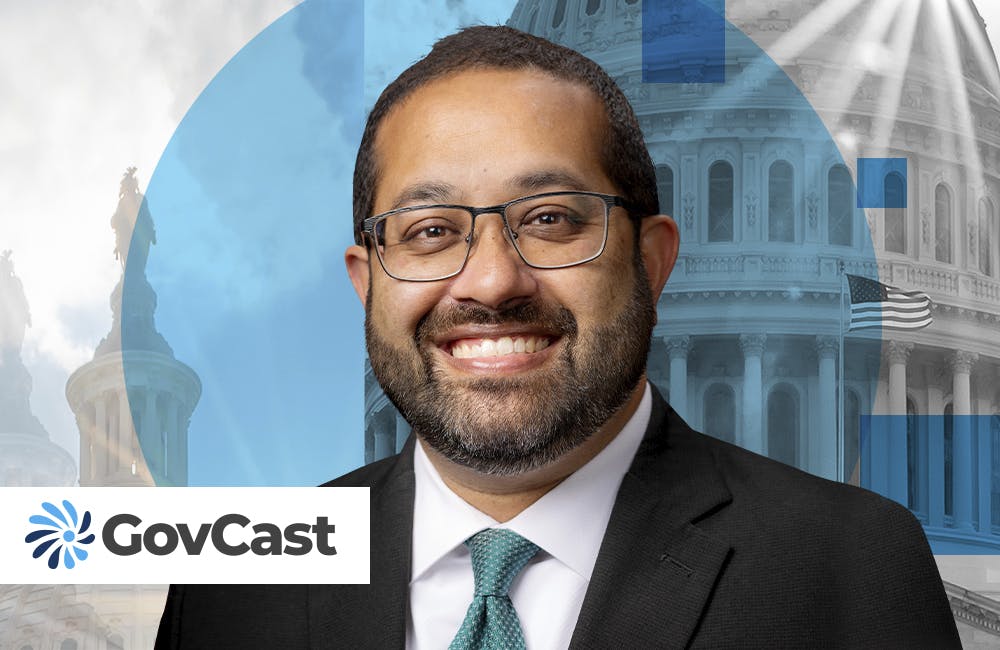Public-Private Influencers Tout Data Value in Federal COVID-19 Response
Agency websites debunk myths while unlikely sources of accurate information appear on social media.

Federal agencies — and industry at large — is taking on the spread of misinformation alongside the coronavirus.
The Federal Emergency Management Agency (FEMA) is among the agencies that have stepped up to manage the spread of misinformation during the national emergency, offering advice on how to “do your part to the stop the spread of disinformation.”
The agency urges everyone to avoid believing any rumors or sharing them without fact-checking first. FEMA was a part of the collaboration with The White House and Centers for Disease Control and Prevention to put together coronavirus.gov to tackle this effort. Similar pages from state and local governments have also been trusted sources of information.
FEMA debunked specific rumors on its webpage, available in 12 different languages. These rumors include:
- “Is there a national lockdown or quarantine?” (“No. States and cities are responsible for announcing curfews, shelters in place or other restrictions and safety measures.”)
- “Do I need a photo ID to be tested for COVID-19 at a community-based testing center (CBTS)?” (“To determine if you are a first responder or health care worker you will need to provide your official workplace photo ID in order to be priority tested for COVID-19 at a … CBTS.”)
For questions about vaccine and treatment development, financial assistance and potential scams, FEMA provides a concise answer and a referral to the appropriate agency for further information.
The CDC continues to update its website with guidance on the latest precautions, and also provides advice on how to stop the spread of rumors on a page about stress and coping, recognizing the additional anxiety lack of clear and accurate information can cause.
“Understanding the risk to yourself and people you care about can make an outbreak less stressful,” the CDC advises. “When you share accurate information about COVID-19, you can help make people feel less stressed and make a connection with them.”
Both FEMA and the CDC recommend that everyone consult with their local and state governments for guidance on quarantines, as those governments have the authority to set guidelines and restrictions.
The World Health Organization has also set up a “myth-busters” page on its website drawing from the most current information on the pandemic from around the globe. The page shares facts about the virus’s spread and what medical experts know about its lifespan, as well as information about the race to find effective treatments and vaccinations.
Despite these efforts, government and international agencies have admittedly experienced difficulties reaching audiences through social media. Here, an unexpected champion of critical thinking has arisen: frozen meat company Steak-umm.
“Friendly reminder in times of uncertainty and misinformation: anecdotes are not data,” tweeted the company’s account, which currently has over 124,000 followers, as of April 6. “(Good) data is carefully measured and collected information based on a range of subject-dependent factors, including, but not limited to, controlled variables, meta-analysis and randomization.”
Since then, the account has provided unbiased pointers on how to spot fallacies and other sources of misinformation, urging users to be wary of so-called “miracle” cures, all-natural remedies or simply those who confirm existing biases with no expertise on the subject. The account has gained popularity with celebrities and quantitative analysts alike.
The account has also encouraged positive interactions with one another during this uncertain time.
“Vulnerable people are always the most susceptible to propaganda, misinformation and conspiracy, especially in times of cultural anxiety,” the company said in an April 9 tweet, “and if there is a way to help them out of these traps, targeted self-righteous vilification isn’t it.”
The company admitted that it is not the obvious destination for accurate information.
“We’re a frozen meat brand posting ads inevitably made to misdirect people and generate sales, so this is peak irony,” the account said in its initial tweet thread. “But hey we live in a society so please make informed decisions to the best of your ability, and don’t let anecdotes dictate your worldview.”
Nevertheless, the Twitter account can’t help but conclude its threads with the company’s motto: “Steak-umm bless.”
This is a carousel with manually rotating slides. Use Next and Previous buttons to navigate or jump to a slide with the slide dots
-

DOD Has a New Cyber Resiliency Assessment Program
Defense officials tout the continuous assessment feature and scalability of the new program amid increased cyber threats.
5m read -

Transitioning Systems for Modern Agency Missions
IT modernization is a constant process necessary for improving customer service, mission delivery and collaboration.
40m watch -

Cyber Resilience and Recovery Amid Evolving Cyber Threats
Data durability is a key aspect of NIST’s cybersecurity framework for public and private organizations.
21m listen -

How Tech Enables Environmental Justice at EPA
The agency wants to eliminate bias and establish new tech standards to reduce greenhouse gas emissions.
39m listen







